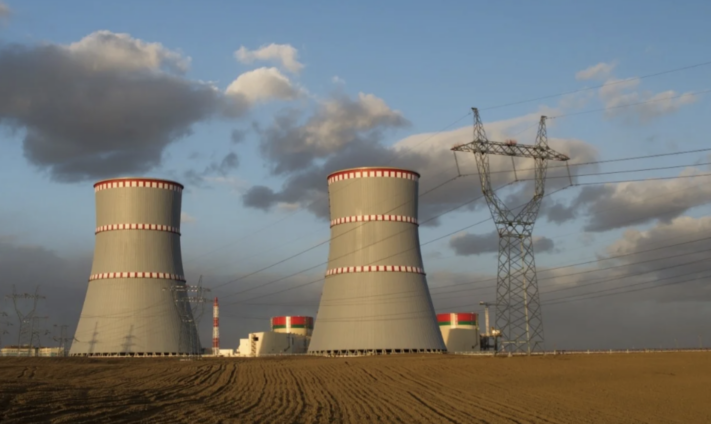Ghana has selected the United States and China as vendors for its first nuclear power plants, though no formal contract has been signed.
The U.S.-based NuScale Power and Regnum Technology Group, in partnership with Japanese firms, will construct Small Modular Reactors (SMRs), while China National Nuclear Corporation will build a Large Reactor (LR).
This was disclosed by Dr. Stephen Yamoah, Executive Director of Nuclear Power Ghana, to the Ghana News Agency on the sidelines of a media engagement in Accra Wednesday.
He said LR will have a capacity of 1,200 megawatts, while the SMRs will comprise 12 modules, each generating 77 megawatts, totaling 924 megawatts.
Dr. Yamoah said the LR would follow a Build, Operate, and Transfer (BOT) financial model with local equity participation, and the SMRs would be financed through Public-Private Partnerships (PPP).
Ghana has signed a framework agreement with the vendors, and experts are gathering environmental and oceanic data to determine the plant’s location.
Mr. Archibold Buah-Kwofi, Acting Director of the Nuclear Power Institute, underscored the need for stable and affordable electricity for national development, noting that Ghana’s energy mix relied heavily on fossil fuels and hydro, with renewables contributing just one per cent.
“We need to fast-track the adoption of nuclear power to secure our energy future,” he said, highlighting the importance of robust regulatory frameworks and skilled manpower.
Nuclear power is expected to reduce reliance on fossil fuels, mitigate climate change, and enhance energy security.
The government plans to integrate one gigawatt of nuclear power into the grid by 2034.
The plant will support industrialisation, compensate for declining hydro sources, lower tariffs for industries, enable desalination, and create jobs.
The vendor selection followed a thorough process, starting with 16 responses to the government’s call.
A technical team, guided by the Energy Ministry, shortlisted five before choosing the final two.
Ghana’s nuclear ambition, disrupted by a coup in the 1960s, was revived in 2006 with International Atomic Energy Agency (IAEA) support.
It is among several African nations pursuing nuclear energy to tackle power challenges and drive economic growth.
Latest Stories
-
Suspended Chief Justice has right to choose trial venue – Ansa-Asare
8 minutes -
Big Chef Junior S4: Kitchen heats up as contestants take on Indomie challenge
25 minutes -
Wontumi picked up by EOCO on his way from CID interrogation
33 minutes -
Photos: Mahama attends AfDB annual meetings in Côte d’Ivoire
38 minutes -
‘Haul the Finance Minister’ – Minority Chief Whip fumes over unpaid state funds
43 minutes -
CJ removal saga: Let’s end ‘this whole controversy’ – Dr. Ansa-Asare
45 minutes -
Top 20 finalists announced for 7th Africa Youth in Tourism Innovation Summit & Challenge
56 minutes -
Christ the King youth lead blood donation campaign
56 minutes -
E Vibes to host Nkyinkyim on musical band series
1 hour -
Importers and Exporters Association urges Ghana Gold Board to sustain efforts in strengthening the cedi
1 hour -
Trump administration moves to cancel all remaining federal contracts with Harvard
1 hour -
KMA cracks down on drivers failing to reduce transport fares
1 hour -
‘You can’t run a democracy on empty’ – Annoh-Dompreh criticises gov’t over EC’s ¢200m arrears
1 hour -
Volta Police Command arrests 26 suspects for drug-related offences
1 hour -
ECG containers were never missing, you just didn’t audit well – Minority to Jinapor on ‘found’ consignment
1 hour

